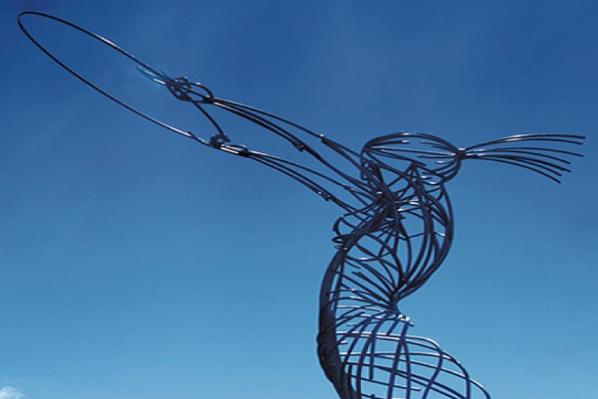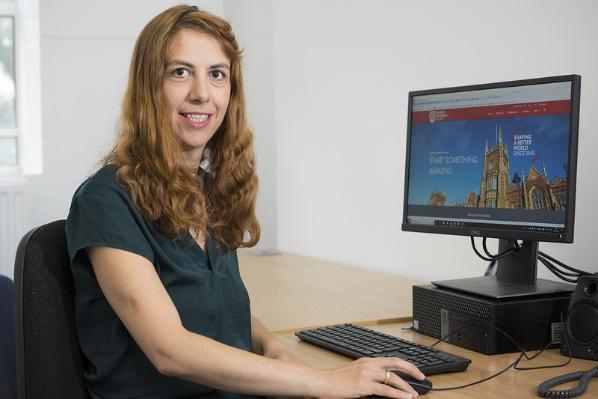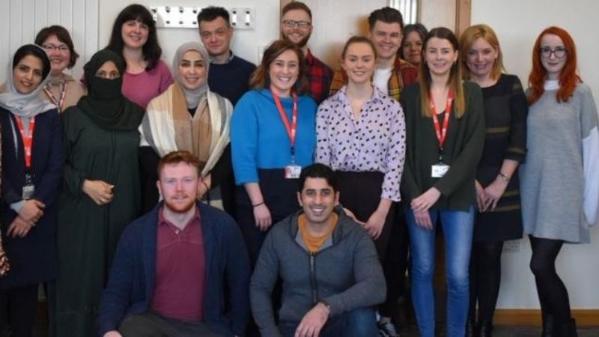Research
In the UK for Research Output
Research Excellence Framework (2021)In the UK for our Research Environment
Research Excellence Framework (2021)The School of Psychology conducts research under the structure of one research cluster entitled Behavioural Sciences. A key feature of our research programme is the leadership the School provides in multi-disciplinary collaborations that address key challenges in society.
The School of Psychology researchers conduct fundamental and applied psychological research that has both a regional legacy in Northern Ireland and a global resonance, addressing important societal challenges. We achieve this through five interlinked research themes: Development and Cognition; Health and Welfare; Brain and Behaviour; Trauma and Mental Health and Social Psychology.
- Our research is facilitated through the development of meaningful and long-term partnerships with organisations, nationally and internationally.
- Our research is funded from a diverse range of sources, including UK central government bodies, local authorities, health and hospital authorities (e.g. Department of Health; Public Health Agency; NIHR), UKRI funders (e.g. AHRC; ESRC; and EPSRC; GCRF Newton), UK-based charities (e.g. Cancer Research UK; Forces in Mind; Leverhulme Trust; Nuffield Foundation; Royal British Legion; the Wellcome Trust; and the Templeton Foundation), EU government bodies (ERC; SEUPB), and UK industry (e.g. Aperture, IVA; Sensum).
- Our research is aligned to the United Nations Sustainable Development Goals where Member States shared a blueprint for health, peace and prosperity for people and the planet, now and into the future.
- Our research is responsive to new and emerging challenges, for example understanding the challenges posted by social distancing during the Covid-19 pandemic and developing evidence-based guidelines for how to stay healthy during this time.
Dr Gavin Breslin, Director of Research

Find out more about our five research groups: Brain and Behaviour, Development and Cognition, Social Psychology, Trauma and Mental Health and Health and Welfare.

Our researchers contribute to several of the University’s interdisciplinary research centres.
Staff from the Perception & Movement and the Social Psychology themes work collaboratively with the Centre For Intelligent Autonomous Manufacturing Systems in the areas of movement in robotics and human robot interaction.
Several staff are fellows of the Mitchell Institute, working collaboratively on joint grants proposals and projects, and contributing to the Institutes summer school.

The School offers an inclusive and supportive environment and provides staff with the time, resources, and academic support and mentorship they need to undertake high quality, impactful research.
Our research is built on a solid foundation of state of the art research infrastructure, backed up by a talented technical support team dedicated to Psychology.
Learn more about our Research Culture and Environment

Dr Gulseli Baysu is the Postdoctoral Researchers' Advisor for the school.
We are committed to supporting the career development of our postdoctoral researchers.
A Postdoctoral Advisor supports and advises research staff, meeting with them regularly, representing their interests at School committee meetings, and organising workshops and training. PDRAs are included in the personal development review process, focusing on their duties within projects and career progression. In addition, they have annual meetings with the Postdoctoral Advisor to discuss the development of their CVs and personal development targets such as fellowship applications. A PDRA committee meets regularly, with a PDRA representative on the School’s Research Committee and the University-wide Postdoctoral and Researcher Advisory Group.

We provide excellent postgraduate research opportunities for PhD students, based on the expertise of our staff and state of the art facilities. We have a vibrant community of postgraduate research students from a number of countries including Bulgaria, Canada, Czech Republic, Greece, India, Ireland, Portugal, Slovakia, Turkey, United Kingdom and United States.
Find out more about PhD research in the School.
Hear from some of our current PhD students and previous doctoral students.
Latest Publications
Realist review of managed alcohol programmes for people experiencing alcohol dependence and homelessness: What works, for whom, and in what circumstances?
- Hannah Carver
- Emma King
- Jessica Greenhaigh
- Gillian Shorter
- Bernie Pauly
- Tessa Parkes
Benefits and barriers: a rapid-ethnographic study on the perspectives of potential and actual clients of Athens’ drug consumption room
- Benjamin D. Scher
- Nikolaos Poulopoulos
- Christos Anastasiou
- Benjamin W. Chrisinger
- David K. Humphreys
- Gillian Shorter
A hypothetical model for investigating the influence of parents on the effectiveness of parent mediated support programmes for autistic children
16 February 2026The social identity model of stress reactivity: an integrated model for understanding physiological effects of stress
- Orla Muldoon
- Aisling T. O’Donnell
- Aoife Mare Foran
- Eadaoin Whelan
- Lisa Skilton
- Alžběta Lebedová
- Anna Mariya Lashkay
- Siobhán M. Griffin
- Gallagher Stephen
- Grace McMahon
- Siobhán Howard
The social life of non-parents: a systematic review of social networks and social support among adults without children
14 February 2026
Future research direction in Psychology
Building on our research strengths we will work collaboratively to address global societal challenges related to mental health and health-related behaviours, and equality, diversity and inclusion.
The school will continue to work closely with our already strong and growing network of community stakeholders undertaking research to inform policy and practice on the ground.
